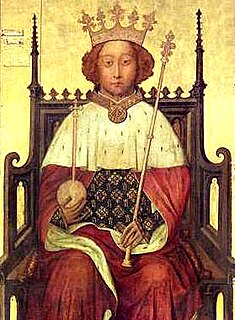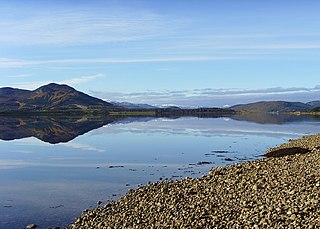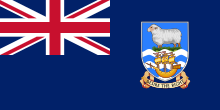
Richard II, also known as Richard of Bordeaux, was King of England from 1377 until he was deposed in 1399. Richard, a son of Edward the Black Prince, was born in Bordeaux during the reign of his grandfather, Edward III. His father was Prince of Aquitaine. Richard was the younger brother of Edward of Angoulême, upon whose death Richard, at three years of age, became second in line to the throne after his father. Upon the death of Richard's father prior to the death of Edward III, Richard, by primogeniture, became the heir apparent to the throne. With Edward III's death the following year, Richard succeeded to the throne at the age of ten.

Flora MacDonald ; was a member of the Macdonalds of Sleat, now remembered for helping Charles Edward Stuart evade government troops after the Battle of Culloden in April 1746. The Sleat Macdonalds supported the British government during the 1745 Rising and Flora later claimed to have assisted Charles out of sympathy for his situation. After his escape to France, she was arrested and sent to London where it was recorded 'all admired the dauntless part she had acted, and she had the honour of a visit from Frederick, Prince of Wales.'

The North West Company was a fur trading business headquartered in Montreal from 1779 to 1821. It competed with increasing success against the Hudson's Bay Company in what is present-day Western Canada. With great wealth at stake, tensions between the companies increased to the point where several minor armed skirmishes broke out, and the two companies were forced by the British government to merge.
MacLeod and McLeod are surnames in the English language.
Óláfr Guðrøðarson, commonly known in English as Olaf the Black, was a mid 13th century sea-king who ruled the Isle of Man (Mann) and parts of the Hebrides. Óláfr was the son of Guðrøðr Óláfsson, King of the Isles, King of Dublin, and his wife Finnguala, granddaughter of Muirchertach Mac Lochlainn, High King of Ireland, King of Cenél nEógain. Óláfr was a younger son of his father; his elder brother Rögnvaldr more than likely had a different mother. According to the Chronicle of Mann, Guðrøðr appointed Óláfr as heir since he had been born "in lawful wedlock". Whether or not this is the case, on Guðrøðr's death in 1187 the Manxmen instead appointed Rögnvaldr as king, as he was a capable adult and Óláfr was a mere child. Rögnvaldr ruled the Crovan dynasty's island-kingdom for almost 40 years, during which time the half-brothers vied for the kingship.

El Dorado is a 1966 American Western film produced and directed by Howard Hawks and starring John Wayne and Robert Mitchum. Written by Leigh Brackett and loosely based on the novel The Stars in Their Courses by Harry Brown, the film is about a gunfighter who comes to the aid of an old friend—a drunken sheriff struggling to defend a rancher and his family against another rancher trying to steal their water. The gunfighter and drunken sheriff are helped by an aging Indian fighter and a young gambler. The supporting cast features James Caan as the young gambler, Charlene Holt, Ed Asner, Paul Fix, Arthur Hunnicutt, Michele Carey, and Christopher George.

Great Britain, represented by the British Olympic Association (BOA), competed at the 1952 Summer Olympics in Helsinki, Finland. 257 competitors, 213 men and 44 women, took part in 127 events in 18 sports. British athletes have competed in every Summer Olympic Games. Indeed, it is the only country to have won at least one gold medal at every Summer Olympic Games: in 1952, they achieved their only gold medal during the last event of the last day of competition in Helsinki. Along with 1904 and 1996, this is Great Britain's lowest gold medal count.

Scotland sent a team of 207 athletes and 85 officials to the 2002 Commonwealth Games in Manchester, England.
The position of Provincial Secretary was particularly important in Manitoba from 1870 to 1874, as that province's institutions were being established. The province had no Premier during this period, and its Lieutenant-Governor acted as the de facto leaders of government. The early Provincial Secretaries were the most prominent elected officials in the province, and are retrospectively regarded as Premiers in many modern sources.

Canada competed at the 1960 Summer Olympics in Rome, Italy. 85 competitors, 74 men and 11 women, took part in 77 events in 14 sports.

Great Britain, represented by the British Olympic Association (BOA), competed at the 1960 Summer Olympics in Rome, Italy. 253 competitors, 206 men and 47 women, took part in 130 events in 17 sports. British athletes have competed in every Summer Olympic Games.
Sir George Munro of Culcairn was a Scottish soldier of the 18th century from Ross-shire, Scotland. He commanded the 3rd Independent Highland Company from 1714 to 1716, fought at the Battle of Glen Shiel in 1719, led the 6th Company in formation of the "Black Watch" in 1725, the 8th Company of Black Watch when it was regimented in 1739 and again commanded an Independent Highland Company in 1745-46. He was shot in error in 1746.

The Battle of Tuiteam Tarbhach was a Scottish clan battle in which the Mackays wiped out raiders from the Clan MacLeod of Lewis who were returning from an attack on Mackay land in Strathnaver. The Mackays caught up with the raiders on the north bank of the River Oykel some three miles west of where the river joins the River Cassley at the head of the Kyle of Sutherland. The battle probably took place in 1406, but the date is uncertain from the manuscripts.

John Bethune founded the first Presbyterian Church in Montreal and was the patriarch of a notable Canadian family prominently connected with the fur trade, politics, medicine, law and the church. He was the great-great-grandfather of Norman Bethune, the Canadian physician and medical innovator, and the great-great-great-grandfather of Canadian actor Christopher Plummer.

The Battle of Carinish was a Scottish clan battle fought in North Uist in 1601. It was part of a year of feuding between Clan MacLeod of Dunvegan and the Clan MacDonald of Sleat, that ended with a MacDonald victory and an enforced peace.

Norman MacLeod (1705–1772), also known in his own time and within clan tradition as The Wicked Man, was an 18th-century politician, and a clan chief of Clan MacLeod. In the 20th century, one chief of Clan MacLeod attempted to have his nickname changed from The Wicked Man, to The Red Man. Today he is regarded as the 22nd Chief of Clan MacLeod.
George Mackay of Skibo was a Scottish lawyer, soldier and politician. He fought for the British Government during the Jacobite rising of 1745 and was later a Member of Parliament.

The Battle of Dornoch took place on 20 March 1746 and was part of the Jacobite rising of 1745 in Scotland. However, although recorded in history as a "battle" there was no actual fighting between the two sides. Instead a large rebel Jacobite force advanced on a position held by a force loyal to the British-Hanoverian Government who were taken by surprise and forced into a retreat. The Jacobite advance was coordinated by James Drummond, 3rd Duke of Perth at Dornoch, Sutherland.

The Raids on Lochaber and Shiramore took place in the Scottish Highlands between 22 May and 31 August 1746 and were part of the closing operations of the British-Hanoverian Government to bring to an end the Jacobite rising of 1745. Sometimes referred to as the "mopping up" operations many rebels surrendered themselves and their arms, while others were captured and punished. It also included the hunt for the Jacobite leader Bonnie Prince Charles Edward Stuart otherwise known as the Young Pretender. Most of the work was done on behalf of the Government by the Independent Highland Companies of militia and also the Campbell of Argyll Militia.
The 2018 Mexican Open was a professional tennis tournament played on outdoor hard courts. It was the 25th edition of the men's tournament, and part of the 2018 ATP World Tour and the 2018 WTA Tour. It took place in Acapulco, Mexico between 26 February and 3 March 2018, at the Princess Mundo Imperial.
















